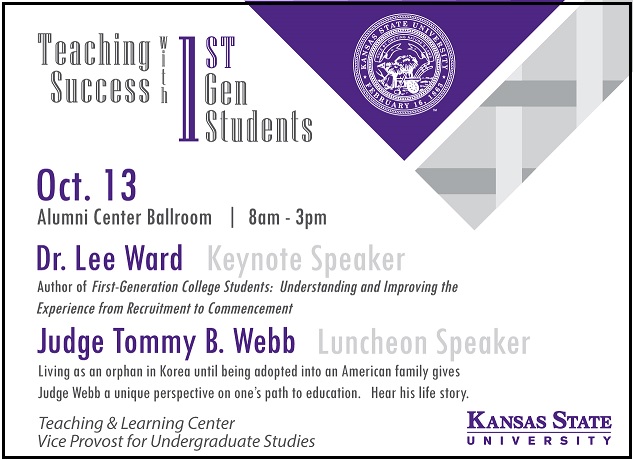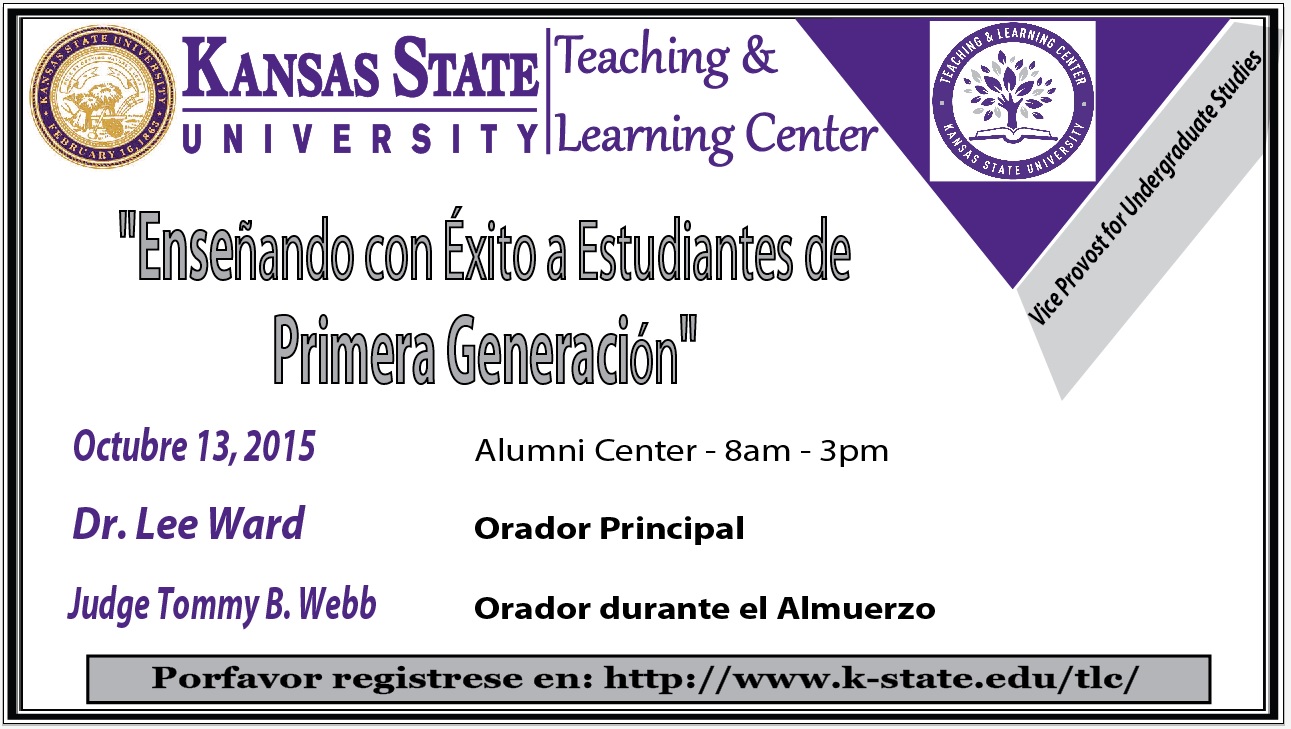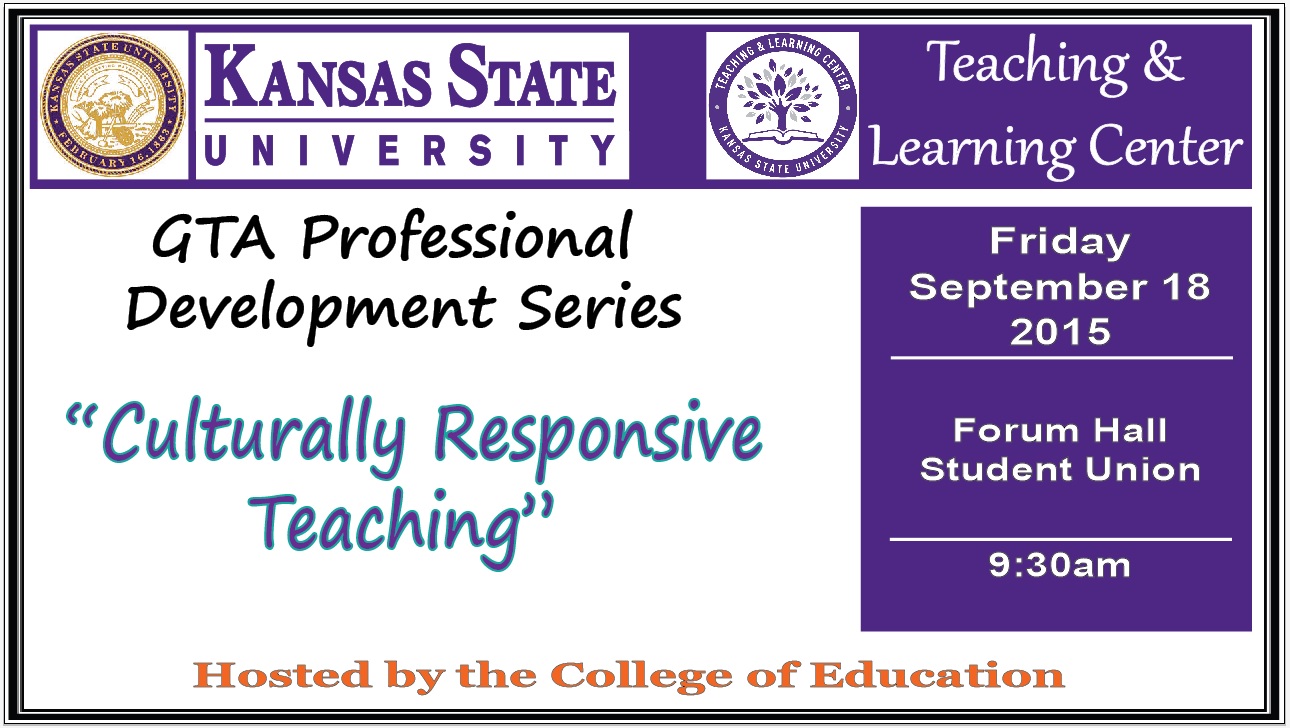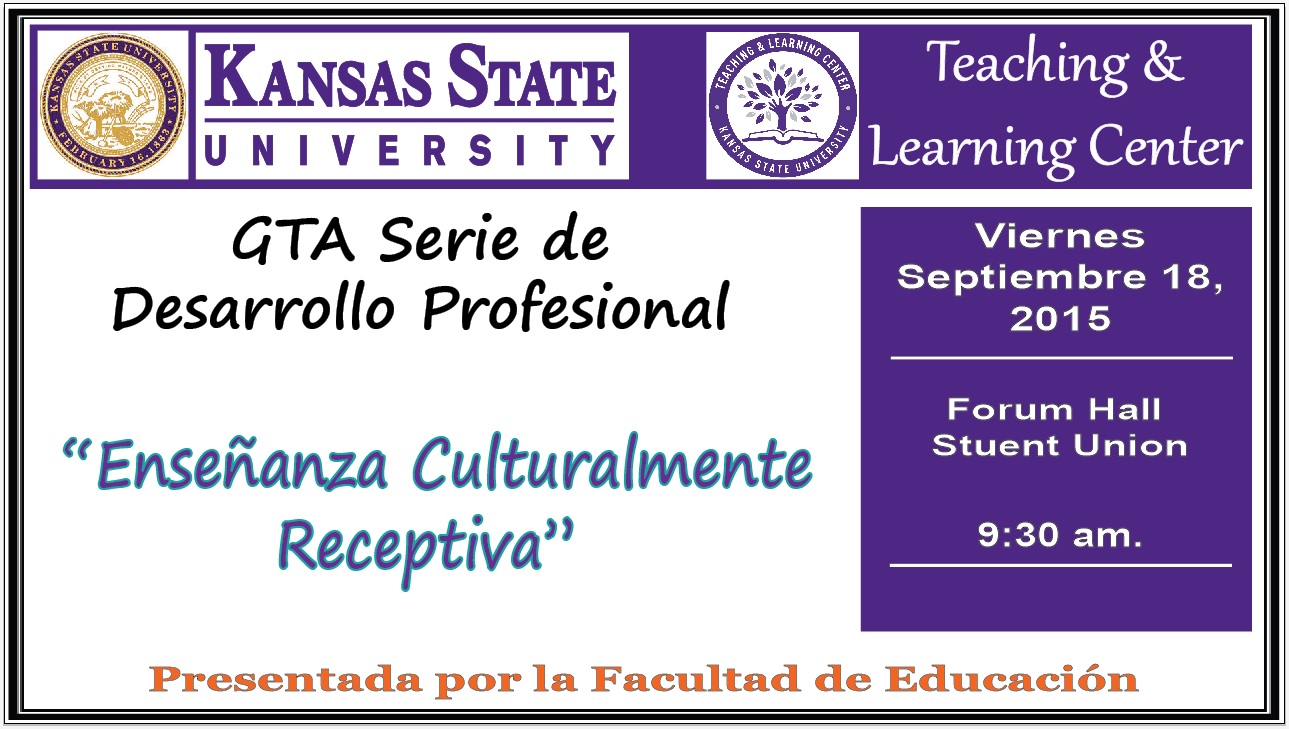“Teaching Success with First Gen Students”
“Éxito en la Enseñanza con Estudiantes de Primera Generación”
Observation #1 – Fall 2015
Principles of College Teaching (EDCI 943)
Observation #1 – Fall 2015
Here you and your partner can post your interview questions and the observed instructor’s responses to these questions. Please refrain from listing the instructor’s name in your post. We will discuss your observation and interview experiences during class.
SoTL
GTA-PDS. “Culturally Responsive Teaching”
GTA-PDS “Enseñanza Culturalmente Receptiva”
GTA-PDS “Teaching Students to Write Well”
GTA-PDS “Enseñando a los Estudiantes a escribir bien”
GTA – PDS- The Teaching Persona
The Teaching Persona
August 26, 2015
Dr. Jana Fallin Ph.D.
Information from: The 4 Properties of Powerful Teachers by Rob Jenkins published in The Chronicle of Higher Education on April 3, 2015, Volume LSI, Number 29, page A31.
 On our first event of the Fall GTA – Professional Development Series, Dr. Jana Fallin talked about the 4 Ps that the persona who is teaching needs to possess and she gave some advices on how to become a great teacher.
On our first event of the Fall GTA – Professional Development Series, Dr. Jana Fallin talked about the 4 Ps that the persona who is teaching needs to possess and she gave some advices on how to become a great teacher.
-
Personality
What are some traits or characteristics that make teachers great?
Great teachers are…
- Good-natured and approachable
- Professional without being aloof
- Funny
- Demanding without being unkind
- Comfortable in their own skin and natural
- Creative and willing to try something new
You do NOT have to emulate all of these traits. One of the best things about teaching is that our profession is idiosyncratic – we are all different, and that’s okay!
Do NOT try to be something that you’re not.
Focus on your positive traits and practice some of these other traits as you see fit.
-
Presence
How can we practice “owning” the room?
Presence is the ability to make students feel at ease in your classroom. Presence is something that we can work on but that takes practice.
You can start practicing by observing other teachers in the classroom. Take notes about things that work well and things that need improvement. Pay special attention to what the STUDENTS are doing as you observe the classroom.
- Practice makes perfect, so try to practice your presentation skills as much as possible – presenting your research in front of your colleagues and/or asking a faculty member if you can guest lecture is a great way to establish your “presence.”
- NEVER just go through the motions. If you are teaching a class for the first time or for the 20th time, make sure you are mindful of your presence.
- Think about videotaping your lectures. It can be painful to watch yourself on video, BUT it can be one of the most helpful ways for you to see how you can improve your presence.
-
Preparation
What does it look when YOU prepare for class?
- You will not always be teaching a subject that you are an “expert in.” As such, preparation is key to being an effective teacher.
- Think of techniques to get students involved with their learning. As you prepare, keep in mind that learning is messy and that is okay. You want to give your students opportunities (e.g., low risk assignments) to take risks and in some cases fail. Failure can be an important learning opportunity.
- When students know that you care about what they think and that you want to help them to succeed, this will motivate them to get more involved with their learning.
- Think about the structure of your class and make sure that you implement this structure and consistency. Structure for your class can be things as simple as showing up early for class each day and/or making details about assignments available ahead of time for students etc. The more your students see you are prepared and want them to succeed, the more likely they are to get involved with their learning.
- Prepare for class by acknowledging that you are NOT the “keeper” of knowledge. Instead you are the “facilitator” of knowledge.
-
Passion
Do you love your subject matter AND your students?
This might be the most powerful and important of all qualities.
- NEVER talk about students in a demeaning and disrespectful way. Sure, there will be times when you get frustrated with your students and you need to vent, but make sure at the end of your venting session you brainstorm solutions to the problem(s).
- If students are coming to class late you can vent about how frustrating that is with a colleague, BUT how might you solve this problem? Maybe talk to the tardy student(s) and/or implement a late policy.
- Constantly complaining without brainstorming solutions to the problems will only create hostility between you and your students – hostility and negativity toward your students ≠ powerful/effective teaching.
















Recent Comments